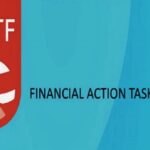KARACHI: Federal Board of Revenue (FBR) has issued guidelines for accountants related to Anti-Money Laundering (AML)/Counter Financing of Terrorism (CFT) laws to comply with conditions of Financial Action Task Force (FATF).
The guidelines have been prepared jointly by Pakistan’s three designated AML/CFT supervisors of accountants in Pakistan, namely The Institute of Chartered Accountants of Pakistan (ICAP), the Institute of Cost and Management Accountant of Pakistan (ICMAP) and the FBR.
Accountants are only subject to AML / CFT measures if they provide the specified activities or services as defined in the Anti Money Laundering Act (AMLA) Sections 2 (xii) (c) (d).
All accountants, therefore, should review Section 4 in the Guidelines to determine whether they provide the specified services, and if so, what are the AML / CFT requirements, and how to implement the requirements.
These are further explained in Sections 5 to 12 of the Guidelines.
The Guidelines are focused on AML / CFT measures such as risk assessment, AML / CFT programme, CDD, beneficial ownership, politically exposed persons, targeted financial sanctions, Suspicious Transaction Report (STR), Currency Transaction Report (CTR) and record keeping. Those measures are further explained in the Guidelines.
The guidelines do not add new regulatory requirements upon accountants.
The guidelines do not address the broader criminal conduct associated with those who engaged in, or aid or abet those engaged in money laundering (ML) or terrorism financing (TF). Those criminal offences under the AMLA and other laws apply to all persons’ subject to Pakistan’s laws.
In addition to the AMLA, the three main regulations referred to in the Guidelines are:
The Anti-Money Laundering and Combating Financing of Terrorism Regulations for Cost and Management Accountants Reporting Firms (SRB AML / CFT Regulations for Reporting Firms)
The Anti-Money Laundering and Combating Financing of Terrorism Regulations for Chartered Accountants Reporting Firms (SRB AML / CFT Regulations for Reporting Firms)
The Federal Board of Revenue Anti-Money Laundering and Combating Financing of Terrorism Regulations for Designated Non-Financial Businesses and Professions (FBR AML / CFT Regulations for DNFBPs)
AML / CFT Sanction Rules 2020 SRO NO 950(I)/2020 (AML / CFT Sanction Rules)
Both the ICAP and ICMAP, as Self-Regulatory Bodies (SRBs), have been designated by Federal Government pursuant to AMLA (Section 6A) as AML / CFT regulatory authorities.
To avoid repetition and any perceived favouritism, and purely for the purposes of the Guidelines, the two professional bodies will be referred to as “SRBs” and their AML / CFT regulations collectively referred to as the “SRB AML / CFT Regulations for Reporting Firms”. Except for the name of the SRB, the two regulations are identical.
The FBR AML / CFT Regulations for DNFBPs are very similar to the SRB AML / CFT Regulations for Reporting Firms. However, they are not identical in terms of numbering and there are sector specific requirements covering other DNFBPs that are not applicable to accountants (accountants licensed by ICAP and ICMAP). For these reasons, they are referred separately in the Guidelines.
The FATF Recommendations of specific concerns to accountants are those covering DNFBPs. DNFBPs include the following:
Casinos
Real estate agents
Dealers in precious metals and stones
Trust and company service providers
Lawyers, notaries, other independent legal professionals and accountants – when they prepare for or carry out transactions for their customer concerning the following activities:
— buying and selling of real estate;
— managing of customer money, securities or other assets;
— management of bank, savings or securities accounts;
— organization of contributions for the creation, operation or management of companies;
— creation, operation or management of legal persons or arrangements, and buying and selling of business entities.
FBR explains accountant as sole practitioners, partners or employed professionals within professional firms when they prepare for or carry out transactions for their client concerning the following activities:
Accountancy services – when carryout monetary transactions for their customers concerning the following activities:
(I) managing, operating, buying and selling of real estate, legal persons and legal arrangements and preparing documents therefore;
(II) managing of client money, securities or other assets;
(III) managing bank, savings or securities accounts; or
(IV) organizing contributions for the creation, operation or management of companies
Trust and company formation services – when they carry out monetary transactions or services for a client concerning the following activities:
(I) acting as a formation agent of legal persons;
(II) acting as or arranging for another person to act as a director or secretary of a company, a partner of a partnership, or a similar position in relation to other legal persons;
(III) providing a registered office, business address or accommodation, correspondence or administrative address for a company, a partnership or any other legal person or arrangement;
(IV) acting as or arranging for another person to act as a trustee of a trust or performing the equivalent function for another form of legal arrangement; or
(V) acting as or arranging for another person to act as a nominee shareholder for another person.


